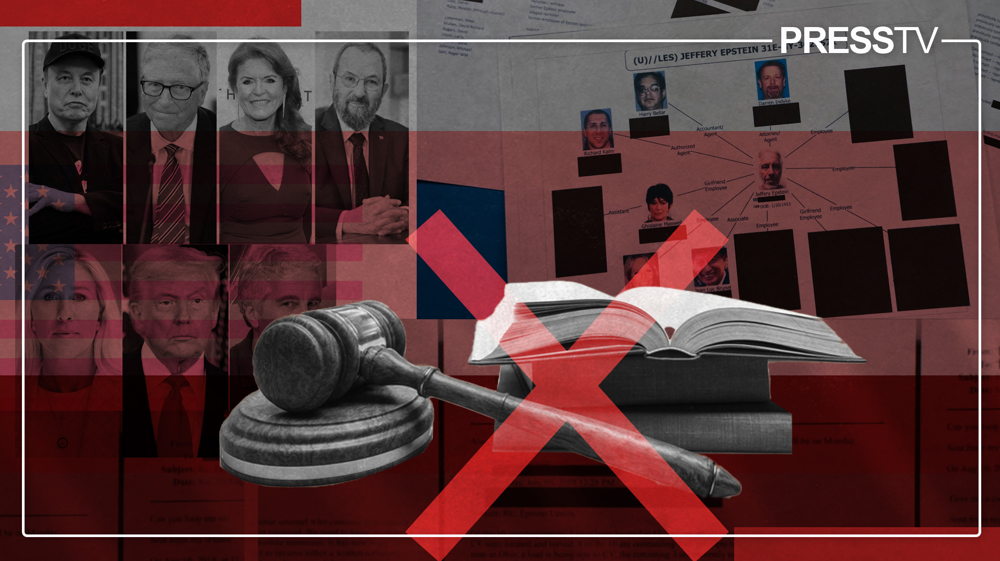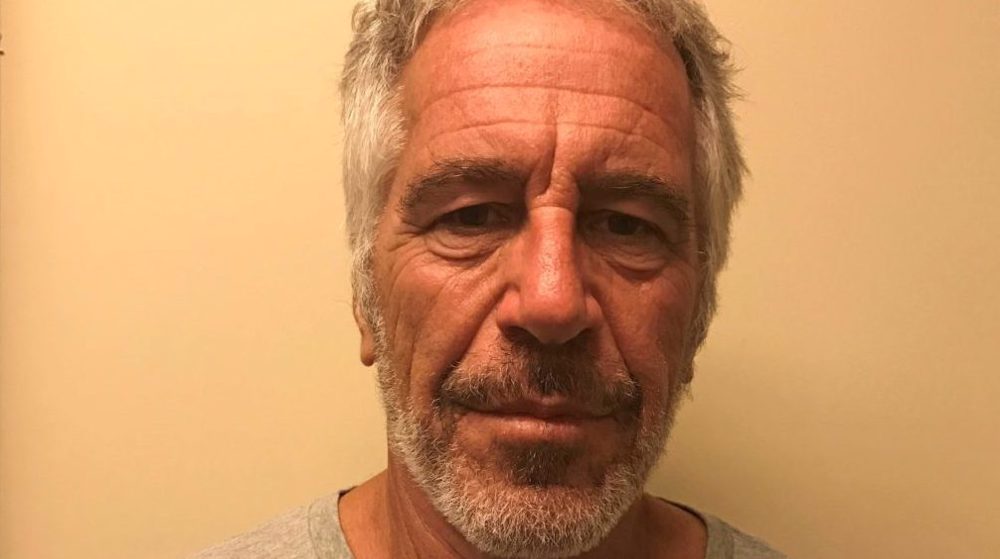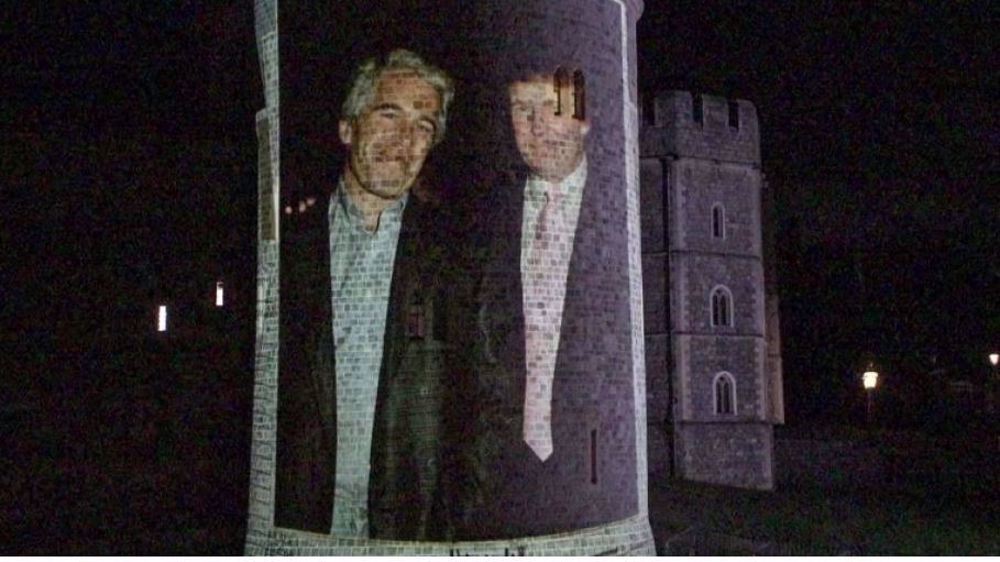Police clash with protesters in Minnesota over killing of Black man
Fresh violence has broken out despite a curfew imposed in the US state of Minnesota after a police officer fatally shot a young Black man.
Police clashed with protesters on Monday night and more protests are planned for Tuesday night across many US cities including Minneapolis and Portland after the police chief in Brooklyn Center said that the officer who shot Daunte Wright during a traffic stop on Sunday meant to deploy a taser instead of their gun.
Protesters demanding justice flocked in front of the police station in Brooklyn Center in the Minneapolis suburb where Sunday's traffic stop killing had occurred.
Police responded to protesters marching, chanting and holding signs demanding justice for Wright's death by firing tear gas, rubber bullets and flash grenades. Protesters later responded by throwing water bottles and fireworks.
In addition to Brooklyn Center police officers, state troopers and members of the Minnesota National Guard were stationed outside of the police department, CBS Minnesota reports.
Forty protesters were arrested during the unrest which left several officers injured.
In Portland city, police said at least 200 people were gathered at the Penumbra Kelly Building, which houses an office for the Multnomah County Sheriff and Portland police, throwing rocks and other projectiles at officers .
"We are here today on behalf of Daunte and all the lives lost at the hands of police, and to prevent further loss of lives at the hands of police," Matt Branch, a community member told the Star Tribune. "The injustices that took place over the last 24 hours were not only heartbreaking, but also calculated and methodical without remorse or consideration for the pain of which our community is collectively experiencing."
Wright, a 20-year-old Black man, was killed after police in Brooklyn Park pulled him over for an expired license tag. Police said that after obtaining Wright’s identification during the stop, officers realized he had an outstanding warrant for his arrest.
Body camera video released by the police department on Monday shows while officer attempted to take Wright into custody, he attempted to re-enter his car and there is a struggle between them.
The female officer panic and shouts "Taser! Taser! Taser!" but then instead pulls out a gun and fires a single shot into him. Wright drives off for a short distance, later crashing and dying from the gunshot wound.
"Holy shit, I just shot him," the female officer is heard saying on the video.
"The officer drew their handgun instead of their taser," said Brooklyn Center police chief Tim Gannon.
Gannon said he believed that the officer, now on leave pending an investigation, "had the intention to deploy their taser but instead shot Mr Wright with a single bullet."
"There is nothing I can say to lessen the pain of Mr Wright's family," he added.
The officer that killed Wright by "mistake" has been identified as Kim Potter, a 26-year police veteran.
"A mistake? That doesn't even sound right," Wright's father Aubrey told ABC television, sitting alongside his sobbing wife Katie.
"I can't accept that. I've lost my son. He's never coming back."
"My heart is literally broken into a thousand pieces and I don't know what to do or what to say, but I just need everybody to know that he is much more than this," Wright's mother, Katie Wright, said.
Chyna Whitaker, the mother of Wright's 1-year-old son, lamented that their child will now grow up without his father.
"He just made you feel better when he came around, and I'm just hurt that he's gone, and I can't believe it," Whitaker said. "He loved his son, and it's not fair that his son won't have his dad in his life."
The police killing of Wright prompted former President Barack Obama on Tuesday to stress that the US needed to "reimagine policing and public safety".
The defense attorney for former officer Derek Chauvin, who is facing murder and manslaughter charges for George Floyd's killing, to ask on Monday for the judge presiding over the high-profile case to sequester the jury.
Last summer, millions of pro-justice protesters took to streets against systematic racism and police violence in the United States.
"You cannot just ask the police to do their reforms themselves - it won't get done," said Robert Davis, a pastor who coordinates a civilian-led task force in Denver that is preparing a report on proposed changes for police. "We have to empower the community to be responsible for public safety."
Tracie Keesee, who spent 25 years as a police officer in Denver before co-founding the Center of Policing Equity said, "People are genuinely trying to do something new."
However, she cast doubt on whether the people’s goal was well defined.
“What are we trying to accomplish?" she asked.
Jeffrey Fagan, a Columbia University criminal justice scholar, said the federal government has an important role in policing reform. But he is increasingly convinced that state-level efforts hold more promise at getting at the roots of police misconduct.
"That is the future of police reform," he said. He called reforms including a police oversight committee that were pushed through the Massachusetts state legislature and signed into law by another Republican governor, Charlie Baker, in December "remarkable." That they came from elected state officials "has a very powerful legitimizing effect," Fagan said.
Maryland's Democratic-led legislature on Saturday also passed aggressive police reforms, overriding three vetoes from Republican Governor Larry Hogan.
Jonathan Blanks, a visiting fellow at the Foundation for Research on Equal Opportunity who focuses on policing, said people often look to Washington for help with big, systemic problems. But officials in DC do not have much authority over local police departments, he said.
Days before former Minneapolis police officer Derek Chauvin went on trial last month for murder in Floyd's death, the "George Floyd Justice in Policing Act" was passed with little Republican support in the Democratic-controlled US House of Representatives.
Among its provisions, the bill proposes restricting certain funds to local governments that let law enforcement officers use choke holds, requiring law enforcement agencies to provide data on use of deadly force, and changing "qualified immunity" to further open the door for lawsuits against police over the use of excessive force. The bill's prospects were uncertain in the Senate, where the Democrats' majority is slim and some moderate Democrats have joined Republicans in expressing concern the proposal would divert funds that police need and make communities less safe.
Xochitl Gaytan, a community activist and member of the Denver task force, said it was underrepresented communities that are disproportionately on the receiving end of police abuses who need to be heard.
She said Floyd's death and the disproportionate impact the pandemic has had on minority communities has helped inspire Americans from many communities to confront what she said was systemic racism and classism in police and other institutions.
Meanwhile, Chauvin is facing murder and manslaughter charges for his role in Floyd's death on May 25, 2020, which occurred during his arrest for allegedly passing a fake $20 bill.
The 45-year-old Chauvin, who is white, was seen in a video taken by a bystander kneeling on Floyd's neck for more than nine minutes as the handcuffed 46-year-old Black man said repeatedly that he could not breathe.
In related news, US President Joe Biden called the police killing "tragic." "I think we have to wait and see what the investigation shows," he said, adding, "In the meantime, I want to make it clear again: there is absolutely no justification, none, for looting."
"Glorifying violence" against protesters and racist policies pursued by former president Donald Trump have been cited by analysts as two of the many reasons for his unpopularity which led to his downfall.
“When the looting starts, the shooting starts,” Trump had written in a warning to people in Minneapolis protesting against the police killing of George Floyd last year.
Trump was apparently quoting the former Miami police chief Walter Headley, who in December 1967 promised violent reprisals to protests over stop-and-frisk tactics.
Six top Trump administration officials appear in Epstein files
VIDEO | Press TV's news headlines
Gaza Nasser Hospital slams MSF’s ‘unsubstantiated’ claims as medical work suspended
Jordan condemns Israeli incursions at Al-Aqsa Mosque as 'flagrant violation'
Ex-Ukrainian energy minister arrested amid corruption probe while trying to flee
VIDEO | Israel using militias to deepen chaos in Gaza
Putin’s aide praises Iran’s ‘competitive’ technological achievements
VIDEO | Brussels exhibition exposes Western-backed genocide in Gaza











 This makes it easy to access the Press TV website
This makes it easy to access the Press TV website